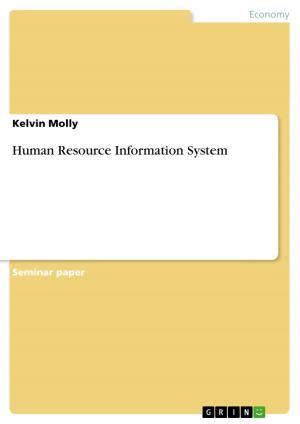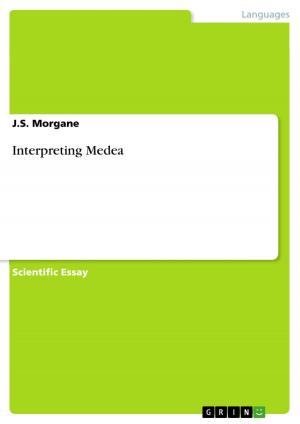The Imperial Message in Rudyard Kipling's Novel 'Kim'
Fiction & Literature, Literary Theory & Criticism, British| Author: | Katja Klass | ISBN: | 9783640852291 |
| Publisher: | GRIN Verlag | Publication: | March 7, 2011 |
| Imprint: | GRIN Verlag | Language: | English |
| Author: | Katja Klass |
| ISBN: | 9783640852291 |
| Publisher: | GRIN Verlag |
| Publication: | March 7, 2011 |
| Imprint: | GRIN Verlag |
| Language: | English |
Seminar paper from the year 2010 in the subject English Language and Literature Studies - Literature, grade: 1, University of Münster, language: English, abstract: Imperialism as a historical fact has left quite contradictory traces in the memories of thousands of people. For many of them Empire was the key to glory and wealth that brought Britain many significant benefits and positively changed the economic landscape of the Indian subcontinent as well. It 'had developed the largest railway system in Asia ..., restored old irrigation systems and developed new ones. There were hydroelectric dams, harbourworks and bridges. There was also a considerable development of system of higher education .... [F]amines were diminished and agriculture tended to be commercialised.' Imperialism had also its passionate critics for whom Empire was the scandal that 'produced ethnic violence, religious exclusion, political weakness, civilizational embarrassment, and national extremism.' For Rudyard Kipling Empire was a philosophy that assumed the superiority of British civilization and therefore its moral responsibility to bring law and enlightenment to 'sullen peoples' of the world. Kipling is generally recognized as the apostle of Empire, 'a spokesman for his age, with its sense of imperial destiny, [the] age is one about which many Britons ... now feel an exaggerated sense of guilt.' The Imperial Idea is seen by many literary critics as the inspiration for the most of his writings. His novel Kim, which appeared at a time historically recognized as 'the turning point in Britain's imperial connections, the start of England's self-perception as 'the weary Titan'' , is an excellent example of a pro-imperialist work which celebrates the authority and benevolence of British rule in India.
Seminar paper from the year 2010 in the subject English Language and Literature Studies - Literature, grade: 1, University of Münster, language: English, abstract: Imperialism as a historical fact has left quite contradictory traces in the memories of thousands of people. For many of them Empire was the key to glory and wealth that brought Britain many significant benefits and positively changed the economic landscape of the Indian subcontinent as well. It 'had developed the largest railway system in Asia ..., restored old irrigation systems and developed new ones. There were hydroelectric dams, harbourworks and bridges. There was also a considerable development of system of higher education .... [F]amines were diminished and agriculture tended to be commercialised.' Imperialism had also its passionate critics for whom Empire was the scandal that 'produced ethnic violence, religious exclusion, political weakness, civilizational embarrassment, and national extremism.' For Rudyard Kipling Empire was a philosophy that assumed the superiority of British civilization and therefore its moral responsibility to bring law and enlightenment to 'sullen peoples' of the world. Kipling is generally recognized as the apostle of Empire, 'a spokesman for his age, with its sense of imperial destiny, [the] age is one about which many Britons ... now feel an exaggerated sense of guilt.' The Imperial Idea is seen by many literary critics as the inspiration for the most of his writings. His novel Kim, which appeared at a time historically recognized as 'the turning point in Britain's imperial connections, the start of England's self-perception as 'the weary Titan'' , is an excellent example of a pro-imperialist work which celebrates the authority and benevolence of British rule in India.















